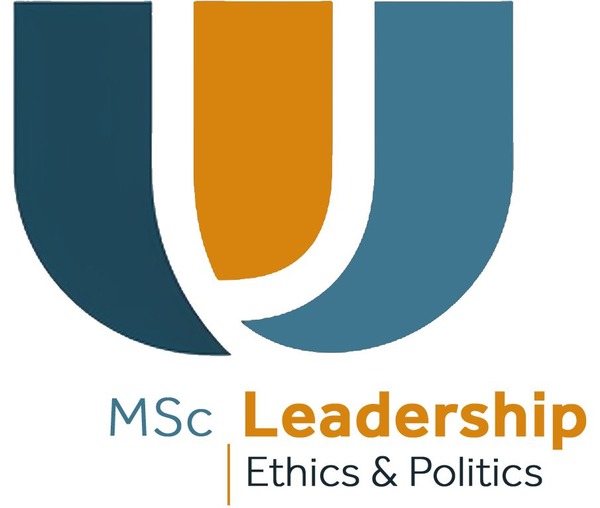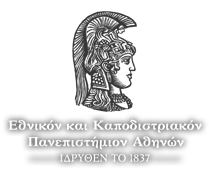Authority and Leadership from Thucydides to Adam Smith (LEPE1)
Ευάγγελος Πρωτοπαπαδάκης
The course will thoroughly explore the genealogy of the concept of political authority (auctoritas) from the works of Thucydides and its reception in classical Europe (primarily in the works of Hobbes) to the Scottish Enlightenment and the work of Adam Smith. At the same time, it will examine the currents of republicanism, natural law, and early liberalism during the classical period from Machiavelli and the Florentine political tradition to the theorists who emerged during the American Declaration of Independence (founding fathers) and the French Revolution regarding leadership issues, focusing on charismatic personalities on one hand, and emphasis on institutional balances on the other. Emphasis will be placed on the often overlooked genealogy of emotional investment in the authority of the institution and the persona of the leader (deference to authority) as a critical element of successful leadership.
LessThe course will thoroughly explore the genealogy of the concept of political authority (auctoritas) from the works of Thucydides and its reception in classical Europe (primarily in the works of Hobbes) to the Scottish Enlightenment and the work of Adam Smith. At the same time, it will examine the currents of republicanism, natural law, and early liberalism during the classical period from Machiavelli and the Florentine political tradition to the theorists who emerged during the American Declaration of Independence (founding fathers) and the French Revolution regarding leadership issues, focusing on charismatic personalities on one hand, and emphasis on institutional balances on the other. Emphasis will be placed on the often overlooked genealogy of emotional investment in the authority of the institution and the persona of the leader (deference to authority) as a critical element of successful leadership.
The course will thoroughly explore the genealogy of the concept of political authority (auctoritas) from the works of Thucydides and its reception in classical Europe (primarily in the works of Hobbes) to the Scottish Enlightenment and the work of Adam Smith. At the same time, it will examine the currents of republicanism, natural law, and early liberalism during the classical period from Machiavelli and the Florentine political tradition to the theorists who emerged during the American Declaration of Independence (founding fathers) and the French Revolution regarding leadership issues, focusing on charismatic personalities on one hand, and emphasis on institutional balances on the other. Emphasis will be placed on the often overlooked genealogy of emotional investment in the authority of the institution and the persona of the leader (deference to authority) as a critical element of successful leadership.
Syllabus
Course Syllabus
I. Ancient democracy and the authority of the leader
II. Authority of institutions and leaders in the constitutions according to Thucydides
III. Republicanism and the authority of the leader in Machiavelli
IV. The authority of aristocratic families within the regimes in Machiavelli
V. The authority of political organs and bodies in Machiavelli's Discourses
VI. Political religion and political charisma in the political tradition of Florence
VII. Authority of the assembly and democracy in James Harrington's work, Commonwealth of Oceana
VIII. Authority of the assembly and democracy in the work of John Adams
IX. Authority of the institutions of the Old Regime and the authority of the new republican institutions during the French Revolution.
X. Authority, power, and the common interest in political systems according to David Hume
XI. Authority, power, and the common interest in political systems according to Adam Smith
Course Objectives/Goals
The skills cultivated within the framework of the course are:
• Autonomy and teamwork,
• Work in an interdisciplinary environment,
• Respect for diversity and multiculturalism,
• Cultivation of critical thinking in leadership issues,
• Patient and thorough interpretation of original philosophical sources,
• Integration of philosophy with applied and/or social issues,
• Writing scientific texts,
• Practice of critical and self-criticism skills,
• Analysis and resolution of current leadership and delegation issues.
Instructional Methods
This course employs a dynamic blend of instructional methods to ensure a comprehensive learning experience. With a focus on engagement and flexibility, the instructional approach comprises 75% face-to-face teaching, fostering direct interaction between instructors and students in a traditional classroom setting. Additionally, 25% of the course involves distant teaching, which can be delivered either synchronously or asynchronously. This remote component allows students to access course materials, participate in discussions, and engage with learning activities at their own pace, leveraging online platforms and resources. By combining face-to-face interaction with remote learning opportunities, the course aims to cater to diverse learning styles and preferences, facilitating deeper understanding and collaboration among students while accommodating individual schedules and needs.
Assessment Methods
- 20%: Participation
- 20%: Oral presentation
- 60%: Written assignment
Prerequisites/Prior Knowledge
This module has no prerequisites in the curriculum or prior knowledge requirements.
Instructors
Instructors for the course will be announced shortly.
Textbooks
To be added soon.
Bibliography
- Arena, Valentino, “The Roman Republic of Jean-Jacques Rousseau”, History of Political Thought, XXXVII, 2016.
- Balot, Ryan, A Companion to Greek and Roman Political Thought, (New York: Wiley-Blackwell, 2012
- Hammer, D. 2015 “Authoring within history: the legacy of Roman politics in Han-nah Arendt”, Classical Receptions Journal, 7, 1
- Hont, I. (2009) ‘Adam Smith’s history of law and government as political theory’, Essays for John Dunn, ed. R. Bourke and R. Geuss, Cambridge University Press
- Khalil (2005) “An anatomy of authority: Adam Smith as political theorist,” Cam-bridge Journal of Economics vol.29: n.1
- Kletzer, Cristopher, & Renzo, Massimo, “Authority and Legitimacy”, The Cambridge Companion to the Philosophy of Law, John Tasioulas, (ed.) CUP, 2020
- Machiavelli, Niccolo, The Prince, Harvey Mansfield (ed.) University of Chicago Press, 1998
- Marshall, Catherine. Deference in a Democratic Age. British Politics and the Constitution from Eighteenth Century to the Brexit, Pangrave MacMillan, 2021
- Pocock, J.G.A. “The Classical theory of Deference”, The American Historical Re-view, Vol. 81, No. 3 (Jun., 1976), pp. 516-523
- Tegos, Spyridon, “Deference to Authority in Adam Smith”, The Adam Smith Re-view, 12, 2021
- Forbes, D. (1976) “ Sceptical whiggism, commerce and liberty”, in (ed.) A.S. Skin-ner, T. Wilson, Essays on Adam Smith, Oxford: 179-202
- Freud, S (1959) Group Psychology and the Analysis of the Ego [1922] ed. J. Strachey, Norton.
- Raz, J. (1979), Authority of Law. Essays on Law and Morality, Oxford: Clarendon
- Sennet, Richard, Authority, W.W. Norton, New York- London, 1989
- The War of the Peloponnesians and the Athenians [Cambridge Texts in the History of Political Thought]. Edited by and translated by Jerem y Mynot, Cam-bridge: Cambridge University Press, 2013
- Xenophon, The Education of Cyrus, Cornell University Press, 2001
I. Ancient democracy and the authority of the leader
II. Authority of institutions and leaders in the constitutions according to Thucydides
III. Republicanism and the authority of the leader in Machiavelli
IV. The authority of aristocratic families within the regimes in Machiavelli
V. The authority of political organs and bodies in Machiavelli's Discourses
VI. Political religion and political charisma in the political tradition of Florence
VII. Authority of the assembly and democracy in James Harrington's work, Commonwealth of Oceana
VIII. Authority of the assembly and democracy in the work of John Adams
IX. Authority of the institutions of the Old Regime and the authority of the new republican institutions during the French Revolution.
X. Authority, power, and the common interest in political systems according to David Hume
XI. Authority, power, and the common interest in political systems according to Adam Smith
The skills cultivated within the framework of the course are:
• Autonomy and teamwork,
• Work in an interdisciplinary environment,
• Respect for diversity and multiculturalism,
• Cultivation of critical thinking in leadership issues,
• Patient and thorough interpretation of original philosophical sources,
• Integration of philosophy with applied and/or social issues,
• Writing scientific texts,
• Practice of critical and self-criticism skills,
• Analysis and resolution of current leadership and delegation issues.
This course employs a dynamic blend of instructional methods to ensure a comprehensive learning experience. With a focus on engagement and flexibility, the instructional approach comprises 75% face-to-face teaching, fostering direct interaction between instructors and students in a traditional classroom setting. Additionally, 25% of the course involves distant teaching, which can be delivered either synchronously or asynchronously. This remote component allows students to access course materials, participate in discussions, and engage with learning activities at their own pace, leveraging online platforms and resources. By combining face-to-face interaction with remote learning opportunities, the course aims to cater to diverse learning styles and preferences, facilitating deeper understanding and collaboration among students while accommodating individual schedules and needs.
- 20%: Participation
- 20%: Oral presentation
- 60%: Written assignment
This module has no prerequisites in the curriculum or prior knowledge requirements.
Instructors for the course will be announced shortly.
To be added soon.
- Arena, Valentino, “The Roman Republic of Jean-Jacques Rousseau”, History of Political Thought, XXXVII, 2016.
- Balot, Ryan, A Companion to Greek and Roman Political Thought, (New York: Wiley-Blackwell, 2012
- Hammer, D. 2015 “Authoring within history: the legacy of Roman politics in Han-nah Arendt”, Classical Receptions Journal, 7, 1
- Hont, I. (2009) ‘Adam Smith’s history of law and government as political theory’, Essays for John Dunn, ed. R. Bourke and R. Geuss, Cambridge University Press
- Khalil (2005) “An anatomy of authority: Adam Smith as political theorist,” Cam-bridge Journal of Economics vol.29: n.1
- Kletzer, Cristopher, & Renzo, Massimo, “Authority and Legitimacy”, The Cambridge Companion to the Philosophy of Law, John Tasioulas, (ed.) CUP, 2020
- Machiavelli, Niccolo, The Prince, Harvey Mansfield (ed.) University of Chicago Press, 1998
- Marshall, Catherine. Deference in a Democratic Age. British Politics and the Constitution from Eighteenth Century to the Brexit, Pangrave MacMillan, 2021
- Pocock, J.G.A. “The Classical theory of Deference”, The American Historical Re-view, Vol. 81, No. 3 (Jun., 1976), pp. 516-523
- Tegos, Spyridon, “Deference to Authority in Adam Smith”, The Adam Smith Re-view, 12, 2021
- Forbes, D. (1976) “ Sceptical whiggism, commerce and liberty”, in (ed.) A.S. Skin-ner, T. Wilson, Essays on Adam Smith, Oxford: 179-202
- Freud, S (1959) Group Psychology and the Analysis of the Ego [1922] ed. J. Strachey, Norton.
- Raz, J. (1979), Authority of Law. Essays on Law and Morality, Oxford: Clarendon
- Sennet, Richard, Authority, W.W. Norton, New York- London, 1989
- The War of the Peloponnesians and the Athenians [Cambridge Texts in the History of Political Thought]. Edited by and translated by Jerem y Mynot, Cam-bridge: Cambridge University Press, 2013
- Xenophon, The Education of Cyrus, Cornell University Press, 2001
Calendar
Announcements
- - There are no announcements -

